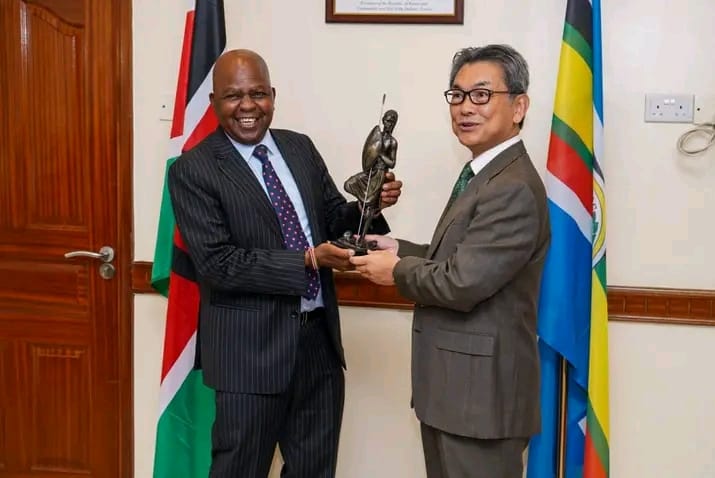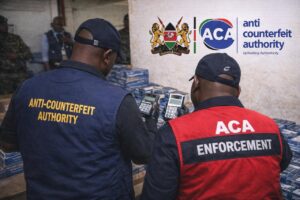Just a few days before Kenya Railways Managing Director Philip Mainga left for the United Kingdom ,he was enduring the anger of having lost Kshs.750,000 to a security officer attached to his office.
In what could link the MD to a money laundering syndicate,the drama between him and the AP officer has left toungues wagging among Kenya railway staffs.
The MD known for his peculiar love for dollars,had some 7,750 US dollars in cash – all hidden in his handbag.
From this,the security detail outmanoeuvred him and walked away with Kshs. 750,000.The officer exchanged the money in an upmarket Bureaux Exchange outlet.
The MD, outraged by the recurring behavior of losing his daily loot to ‘unknown’ people at the office,decided to conduct investigations.He paid for a CCTV footage at the Exchange Outlet.
This is when he realized that the officer stole the dollars.
The amount as per our reliable sources, is sourced from some of the daily collections from Commuter Rail Services and The SGR commuter train charges.He has also made a fortune from kickbacks for tenders in the planned Railways City Project.
Mainga would later demand the arrest of the officer and indeed,he was detained at the Railways Police Station.
The MD would later demand for his release and consequent dismissal of the officer who his now back at his previous AP post in Nairobi.
Our private investigations further reveal that the MD has put junior officers on notice against accessing his office without permission.The remaining officers have also been warned against any future theft.
However,the revelations unearth the rot at Kenya Railways and puts the MD on the spot.
In Kenya, public officers possessing large sums of cash, particularly if suspected to be proceeds of crime or obtained corruptly, can face legal repercussions under the Proceeds of Crime and Anti-Money Laundering Act and the Leadership and Integrity laws. The law requires reporting of large cash transactions, and public officers are held to high standards of financial probity.
Some of the Anti-Money Laundering Laws include the Proceeds of Crime and Anti-Money Laundering Act, which aims to prevent and combat money laundering and terrorist financing.
This act, along with regulations, requires reporting of large cash transactions (above Sh1 million) to financial institutions.
The Financial Reporting Centre (FRC) plays a key role in monitoring and investigating suspicious financial activities.






More Stories
Hotel Sapphire Launches Onyx Fitness Club and Aura Wellness Spa in Mombasa CBD
With Brand and Shareholding Vindicated, SportPesa Unveils 100+ Event Plan for 2026
Health Ministry Advises Kenyans Against Tree Hugging Exercises